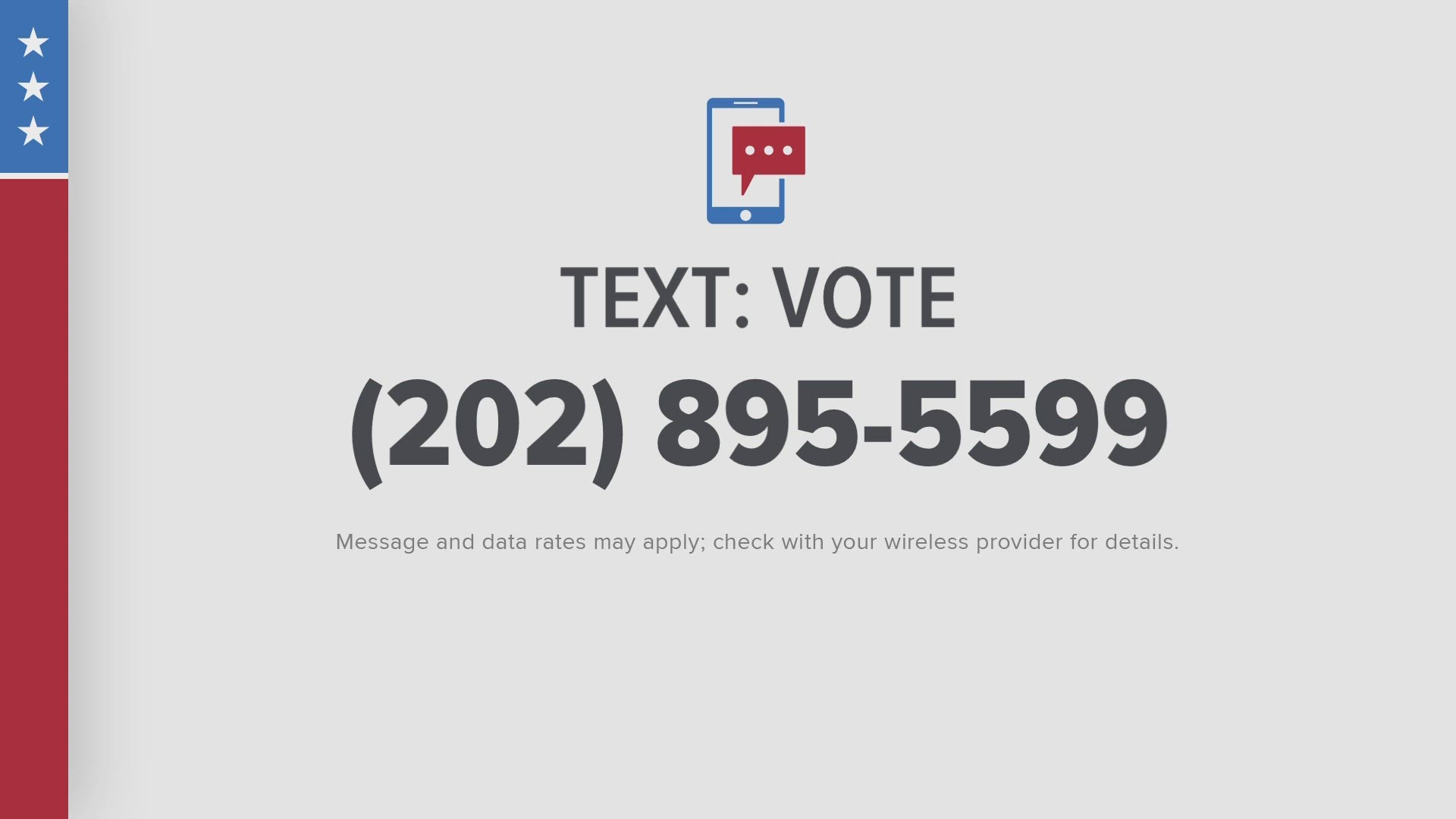FREDERICKSBURG, Va. — A new research survey conducted for the University of Mary Washington (UMW) found that Virginia voters are nearly evenly divided in their political party preferences for the upcoming midterm elections.
The results found that 40% of those asked want to see the Democrats in control of Virginia's House of Delegates and Senate, while 37% favor Republican control. When narrowing the results down to just likely voters, the results were evenly split at 42% favoring either party. The statewide survey did not ask about desired specific legislative race outcomes due to a self-described "small sample size in each district."
“Virginia has rapidly returned to its purple state status,” said Stephen J. Farnsworth, professor of political science at the University of Mary Washington and the Center’s director. “This new statewide survey shows that Virginia’s voters are basically evenly divided as they approach the upcoming Virginia legislative elections.”
When asked what the most pressing problems facing the country were, 21% said threats to democracy, while 20% said inflation, 16% said the economy and jobs and 10% listed immigration as a top concern. Nearly 65% of those polled said candidates' stances on Virginia public school policies would play a large role in how they cast their vote come November, and 53% said abortion views would be a major factor. The importance of education policies was pretty evenly split among Democrats, Republicans and Independents (64%, 65% and 64% respectively) while the gap was wider when it came to factoring in abortion stances (70% of Democrats compared to 35% of Republicans and 54% of Independents).
“Virginia midterm elections are at least partially a referendum on the incumbent governor, who has served nearly half a term at that point,” Farnsworth said.
Forty percent of those polled said they approved of Virginia Gov. Glenn Youngkin and 37% said they disapproved. Seventy-four percent of Republican respondents said they believed the governor was "doing a good job" compared to only 16% of Democrats polled and 36% of Independents.
“Expect each political party to continue to talk past the other,” Farnsworth said. “Republicans will focus on perceived threats to parental rights in education, while Democrats will talk about what Republicans will do to further restrict abortion if they secure legislative majorities in Richmond. The very close divisions among voter preferences in this survey demonstrate that both parties are largely evenly matched in Virginia right now.”
The survey polled 1,000 Virginia adults -- including 833 registered voters and 771 likely voters -- and was conducted over a period of seven days in September via phone and online. The poll was done by Research America Inc. for the Center for Leadership and Media Studies at UMW. According to a press release from UMW, the margin of error on the total sample is +/- 3.0%.
Election Day is on Nov. 7, but Virginians can vote early now through Nov. 4.
A form of identification is needed to vote in the commonwealth.
The list of approved IDs includes:
- Virginia driver’s license - current or expired
- Virginia DMV-issued ID card - current or expired
- Valid employee ID card
- U.S. Military ID
- Valid student ID by a public or private school located in Virginia
- Valid student ID with a photograph from a public or private school located in the U.S.
- Valid U.S. passport or passport card
- Government-issued ID card from federal, Virginia or local political subdivision
- Voter ID card issued by Dept. of Elections
- Voter confirmation documents
- Valid tribal enrollment or other tribal ID
- Nursing home resident ID
- Current utility bill, bank statement, gov. Check or paycheck containing the name and address of the voter
- Current government document containing the name and address of the voter
- Signed ID confirmation statement
If you do not have an approved form of identification, you can still vote but will have to sign an ID confirmation statement. If the statement is not signed, voters will receive a provisional ballot and will have until noon Nov. 10 to fax, email, mail or deliver an acceptable form of ID to the election’s office in order for their vote to count.
You can find everything else you need to know about voting in Virginia elections here.

